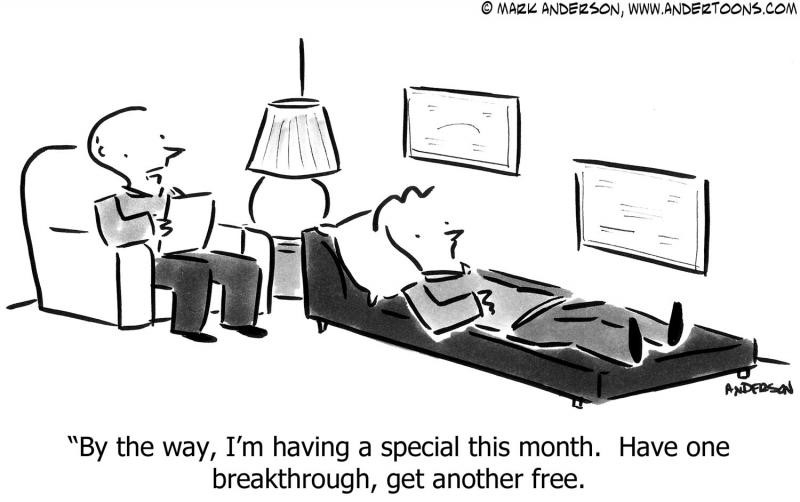Individual Therapy
When people think of therapy, often the first image to pop into mind is of a person lying on a couch with a suited, bearded man wearing glasses and taking notes on a clipboard! Although most therapists do have a couch, clients typically don't find themselves lying on it. The days of Freudian psychoanalysis have passed. Although we owe a lot to Freud, therapy is not a passive process where one is waiting for the therapist to do something. Above all, therapy is a special kind of relationship with a unbiased, neutral person who is trained to listen, reflect, challenge and help develop personal insight. Research has shown that the greatest factor for success in therapy is the relationship the client has with the therapist. With this in mind, it's crucial to find the right fit for you. We encourage you to ask yourself, "Does this person get me? Do I feel like I can trust this person? Is it easy to talk to this person? Will I be comfortable getting important feedback from this person? Will I be comfortable giving feedback to this person?"
We view mental health as a unique reflection of each person's environment, culture, relationships, experiences and brain structure. Everyone is a combination of these factors and we take them all into account to evaluate the "big picture" of how best to help a client who is struggling. We wholeheartedly believe that YOU are the expert in your own life. We offer feedback and suggestions when appropriate, but you get to decide whether they feel relevant and useful.
We use a integrative approach to therapy. We draw on numerous modalities, depending on your specific needs and circumstances, including Cognitive Behavioral, Family Systems and Narrative therapy. For some people, this means addressing negative thinking, for others this means focusing on the solution, for others still, this means searching for the exceptions to the problem that are likely present but unacknowledged.

